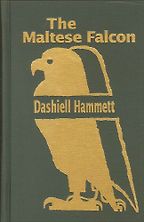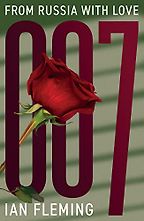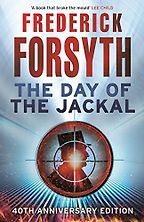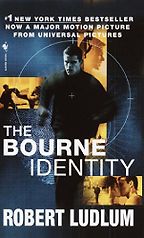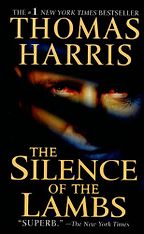What have your book choices got in common?
These are all thrillers I wish I’d written and they’ve all had good film adaptations made. In these cases the book and the movie enhance each other. I think when you write thrillers you always think how good it would be to have the book made into a film.
So, The Maltese Falcon by Dashiell Hammett.
You can’t think of Sam Spade without thinking of Humphrey Bogart. In this one you’ve got an interesting central character, Sam Spade, who’s bitter and sardonic and plays each side off against the other. In some ways he’s the archetypal flawed detective, later popularized by Raymond Chandler. I don’t know if Hammett did it first, but he did redefine a lot of the conventions of the hard-boiled genre. There is never a clear statement, for example, on Spade’s morality, on whether he’s good or bad. His partner dies and it turns out he’s having an affair with his wife. He sends a woman to jail when he could have saved her. The Maltese falcon itself is this artefact covered in jewels that has been painted black to disguise it, but it’s a complete McGuffin! It doesn’t actually matter at all, except to provide motivation for the characters. I’ve used this device in my new book about the illicit trade in antiquities – I’ve used an ivory mask that really was found in London and had been dug up in Italy.
So an inanimate object providing motivation for the human drama is handy in thriller writing?
Yes. I mean, think of Pulp Fiction. We never do find out what’s in the bloody briefcase. You could say it’s a cop-out, but it’s no more of a cop-out than your best friend dying and having to find out who the murderer is. You need something to get the story in motion. My artefact isn’t actually fictitious. I think if there is real life in the book you can in some ways educate the reader and get them thinking: ‘I never knew that!’ I think Dan Brown’s books are often like a lecture embedded in a chase story.
A classic next: From Russia With Love, Ian Fleming.
I think this is probably the best Bond book. It was one of Kennedy’s top ten reads. It’s different from the others in that the first third is about Smersh and Grant, who turns out to be an assassin. Also, it’s set in Istanbul which is my favourite city. I told my wife we should buy a place there but she’s not having any of it. Bond always takes us to places that, I suppose especially in the 60s, are so exotic. Fleming was actually in Istanbul in the 1950s and he uses an incident in this book, I think, where the Greek Commissioner was attacked by the Turks and the Turkish authorities just stood by.
What Fleming does is he has a central character who’s totally compelling – a fantasy figure who men want to be like and women want to sleep with. He’s sophisticated and charming with a slight brutality. It dates a bit now some of that, the language and the racial depictions perhaps don’t work so well. But you’d have to struggle to look at literary fiction over the past 50 years and come up with a character who has really inhabited the popular consciousness.
Also, Fleming’s a journalist and he writes in this muscular, punchy style. He has three pages on how a gun works. That really appeals to the geek in all of us. It had a fantastic cover too.
Now The Day of the Jackal, Frederick Forsyth.
Again, this has a real historical character, De Gaulle, as well as the character of the Jackal himself, the assassin. It’s very well-written in a way that perhaps my next choices aren’t, and it depicts France in the 1960s in an incredibly convincing way. It’s an amazing trick really because we all know De Gaulle wasn’t assassinated, but the whole way along we’re thinking: ‘Shit! Is he going to die?’
How does Forsyth do that?
I think there’s an implicit contract between the reader and the author – we know he didn’t die but we want to know how close he came. It’s laid out in sections – Plot, Hunt, Kill – so you know someone’s going to die. I mean, all great thrillers make you want to turn the page. In a good heist movie, it’s more about the detail leading up to the heist than about the heist itself.
The other thing about The Day of the Jackal is that Forsyth in this book exposed the practice of applying for passports in the name of dead children. People would go to graveyards and look for the graves of children. The government actually had to change the law on the basis of his research.
Next, The Bourne Identity by Robert Ludlum.
This is not a brilliantly written book, but the movies are fantastic and quite different really from the book. I picked this up at the airport on the way to France for a holiday with my parents when I was 16 and they say they didn’t see me for five days. I went down to the English language bookshop in Nice to buy the sequels. This guy is an assassin but a good guy, better than the men on the right side of the law.
I don’t know the story.
Well, Bourne is found in the sea and has lost his memory, but embedded in his hip are the details of a Swiss bank account. He goes to the Swiss bank and finds 15 passports in different names, and all these guns. It’s a journey of self-discovery in that he actually has to find out who he is. He is confronted with who he was and then who he is now as he comes out of amnesia.
Now to The Silence of the Lambs by Thomas Harris.
I was going to have Le Carré’s The Little Drummer Girl but I think Le Carré’s overrated and I think Thomas Harris is underrated.
Hannibal Lecter is such a compelling character but he only actually appears on about 30 pages of the book. I mean, Anthony Hopkins won Best Actor for the role, not Best Supporting Actor, and he was on screen for about 13 minutes. He has a tiny amount of dialogue but totally dominates the film. Again this has elements of reality in it. He has based Lecter on Ed Gein, a serial killer who robbed graves and killed woman in order to flay the corpses for their skins. Gein was also the basis for The Texas Chainsaw Massacre and Norman Bates in Psycho. He also uses the real murderer Garry Ridgeway who dumped women’s bodies with objects inside them.
Like Forsyth in The Day of the Jackal, Harris breaks a story in that he popularised or exposed the workings of the FBI’s criminal profiling unit. He put them on the map. Nowadays they are always in any crime drama.
He also does a lot with names – Clarice Starling, for example. I think Hannibal comments that she has fallen from the nest, underlines her vulnerability. And the name Clarice says she’s from the South. Hannibal Lecter, of course, is probably the best name in fiction, showing his brutality, dominance, and erudition. He’s a horrific killer but would be a great dinner-party guest. All these characters have two sides – Bond is a thug and a seducer, Spade is sleeping with his best friend’s wife while investigating his murder, Bourne is a good-guy assassin.
So, the elements you need to write a perfect thriller are …
A brilliant central character, a recognisable writing style (Fleming has short sentences and muscularity, Hammett has fantastic dialogue), some link to reality like a real event, character or detailed research, an inanimate object around which the human story revolves, and a news story that breaks as a result of the novel.
December 2, 2009. Updated: March 8, 2025
Five Books aims to keep its book recommendations and interviews up to date. If you are the interviewee and would like to update your choice of books (or even just what you say about them) please email us at [email protected]
Five Books interviews are expensive to produce. If you've enjoyed this interview, please support us by donating a small amount.
